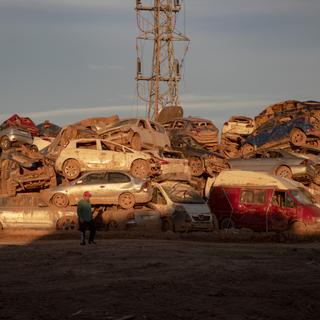


After the floods in Valencia, the psychological trauma of the population is still raw
Your storiesAnguish, anxiety, post-traumatic stress, depression insomnia and other psychological disorders caused by the devastating floods in Valencia have inflicted deep-seated damages on the mental health of residents in the affected communities.
It was planned that Robert Colero, a 48-year-old farmer, would explain the ravages of the Valencia floods on his fields to Le Monde. For almost two hours, the man was unable to extract himself from his account of the hellish night of October 29, when he and his wife thought they were going to die in the flooding of the Poyo, in the La Torre district of Valencia's southern suburbs.
Trapped in their car, which they had parked on a sidewalk when the water began to rise, they were able to escape through the vehicle's sunroof after seeing people get swallowed up by a three-meter wave that covered the tunnel close by. They swam as best they could, then floated, clinging to bales of straw, before miraculously climbing onto a pole to finally be rescued by firefighters after three hours spent in "thick, brown cold" water, listening to the cries of the neighbor's five children, who had taken refuge on the roof of their house.
"Even knowing now, that those kids I watched grow up are alive, I can't get those screams out of my head," said the man, his eyes clouded by the nightmarish memory. His 18 hectares of market garden crops were destroyed. His family home, where six generations grew up, was devastated. His tractors and cars are beyond repair. He tries to hold on, admitting that his "nerves are on edge." In the garage of the building where he lives, the bodies of 11 people who died in the floods, including 3 children, have been recovered. In all, he knows 26 of the 222 dead and 4 missing in the floods.
You have 71.33% of this article left to read. The rest is for subscribers only.
